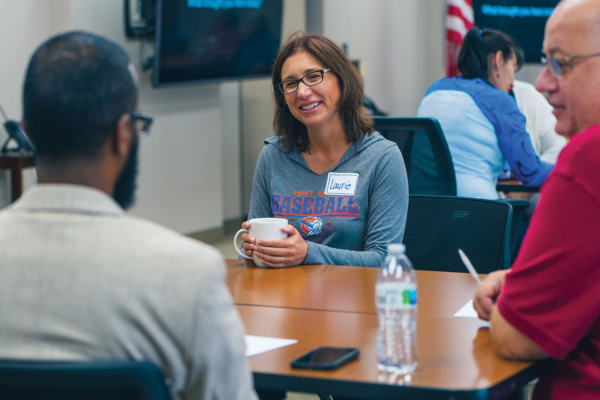The Contradictions of Learning Together
April 01, 2020
MOVING YOUR BOARD AND STAFF TOWARD A CULTURE IN WHICH PROBING QUESTIONS ARE ENCOURAGED AND NOT SEEN AS PERSONAL ATTACKS
-copy.jpg?sfvrsn=ee813e2_7)
Learning is essential to innovating our organizations, yet not central to the way we govern our school districts. As a superintendent of 12 years across three districts, I frequently experienced this misalignment.
For instance, while completing
a comprehensive curricular overhaul in mathematics, the board of education would question teachers and administrators as an ongoing part of their meeting agenda. Although I understood their inquiry as thoughtful and improvement-focused, our staff
often viewed the probing questions as personal attacks. I knew they were not.
The seven board members in that Midwestern school system were genuinely interested in better understanding our work. They asked questions that challenged deeply
held assumptions and practices, which unwittingly caused tension and discomfort. As the process played out in public, staff members misinterpreted that questioning as a lack of appreciation for their expertise.
All of us at the time were
experiencing the discomfort of trying to learn and improve together in a political context that is not conducive to learning and innovation. Uncertainty, exploration and experimentation do not coincide with the perceived expectations, regulations
and responsibilities of board governance. There is a significant disconnect between the personal and collective learning required for meaningful improvement and the structural and regulatory process for governing improvement efforts.
This Content is Exclusive to Members
AASA Member? Login to Access the Full Resource
Not a Member? Join Now | Learn More About Membership
About the Author
Her latest book is Learn to Lead, Lead to Learn: Leadership as a Work in Progress (Rowman & Littlefield, 2020).
Advertisement
Advertisement
Advertisement
Advertisement

.png?sfvrsn=3d584f2d_3)

